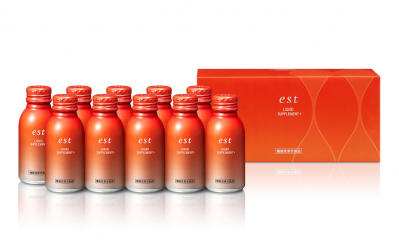‘Beat the bottleneck’: China functional food specialist BuffX to launch TCM-concept breakfast

A specialist in functional gummies, the start-up first entered the market in late 2020 with products for energy, sleep, eye, immune, digestive, and liver health.
With products sold online, in social media platforms, and offline in supermarkets and pharmacies, its earlier success mostly came from young consumers living in tier one and two Chinese cities.
Speaking to NutraIngredients-Asia, CEO Kang Le revealed that the company would be venturing into TCM-related products targeted at consumers from the third and fourth tier Chinese cities.
The first product to be launched is developed based on TCM formulas 1) Si Shen Tang (四神汤), which is usually taken to improve appetite and 2) Shen-ling-bai-shu-san (参苓白术散), which is widely used for gastrointestinal disorders.
The powder based product turns into a mush after it is dissolved in water and can be eaten for breakfast.
Sold under the brand Song Li (送理), the product will be available in all online channels including Tmall, Pinduoduo, social media apps, pharmacies, and supermarkets from August.
Data-driven decision
Kang said that the decision to leverage on the TCM concept was a policy and a data-driven one.
First, he pointed out that the populations living in tier three and four cities were expected to see a growth in income, since the Chinese government is working towards the goal of ‘common prosperity’.
There is thus potential for an increase in spending in these regions.
In contrast, competition in tier one and two cities has been intensifying and as such, the firm prefers to tap on growth opportunities elsewhere.
“In the past two years, BuffX has seen its sales stabilised...The sales of functional foods in the tier one and two cities have also come to a bottleneck.
“As a start-up, we need to carve out our own growth territories and go into the fast-growing categories, instead of fighting with the other brands in the matured categories that are already dominated by a few major brands,” Kang said.
Second, consumer survey found that consumers in these cities have a “positive” attitude towards TCM and deem it as healthy.
This is based on their findings from Douyin – the China version of TikTok – and data from e-commerce and reports on the TCM market.
Two ingredients became exceptionally popular on Douyin in China last year, he pointed out.
One of them was exocarpium citri grandis, known as 化橘红 in Chinese and is said to possess throat-soothing properties. The other is Indian gooseberry/amla, known as 玉油柑 and is said to alleviate constipation.
“From Douyin, we saw that the populations from the third and fourth tier cities have a positive attitude towards TCM, they see it as healthy and useful – a finding which caught us by surprise.
“I have to admit that I was biased against TCM at first, as with consumers from first tier cities Shanghai and Beijing, with the exception of Guangzhou,” he said.
A reason was because TCM has been deemed as unscientific, lacking in scientific evidence and has been plagued with scandals that cast doubts on its quality and safety, he explained.
“However, I have to say that TCM is like an A/B-test that has been ongoing for more than thousand of years and is backed with clinical data but [the public] has been distracted [by negative news about TCM].
“Nowadays, there is also a stronger confidence in our Chinese cultural identity amongst the younger generation,” he said.
The company has spent about one year in the R&D process of its new TCM concept powder product since last June.
Moving forward, it will continue to experiment with the likes of the Chinese consumers based on two factors – taste and functionality.
“We have developed about 20 different flavours and functionalities such as ‘reducing heat’, alleviating premenstrual symptoms, and we will be conducting more consumer tests to decide whether our new product development for Song Li should focus on taste or functionality.”
Two-pronged approach
Asked how the company will approach the marketing of its functional food brand BuffX and its TCM brand Song Li, Kang pointed out three elements – city tiers, consumption habits, and duration.
BuffX functional foods, for example, is targeted at consumers from the tier one and two cities and are meant to be consumed at specific settings, such as taking it at night to aid sleep.
In October, the company will be launching five new gummy SKUs under the BuffX brand, but Kang declined to reveal more details.
On the other hand, Song Li is targeted at consumers living in tier three, four, and lower cities and is meant to be consumed daily over a long term period.






















